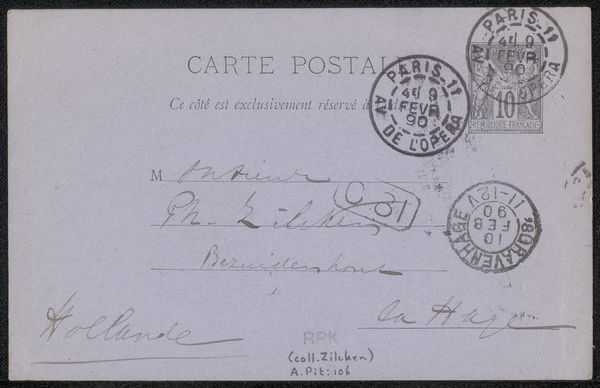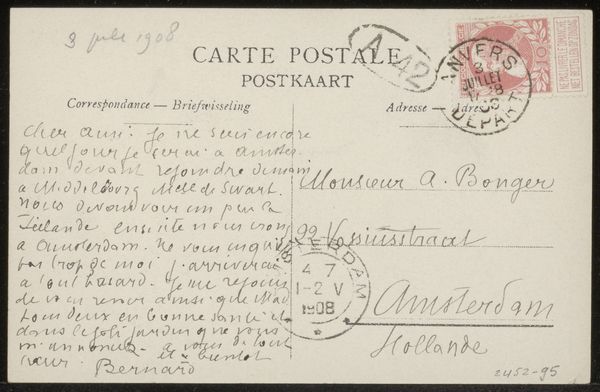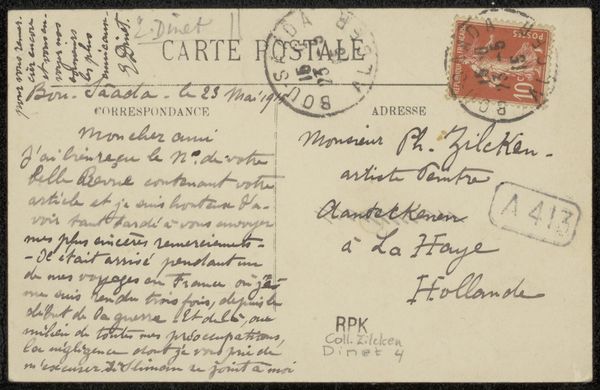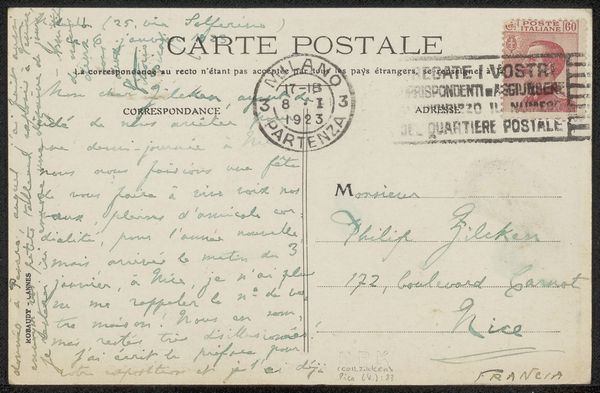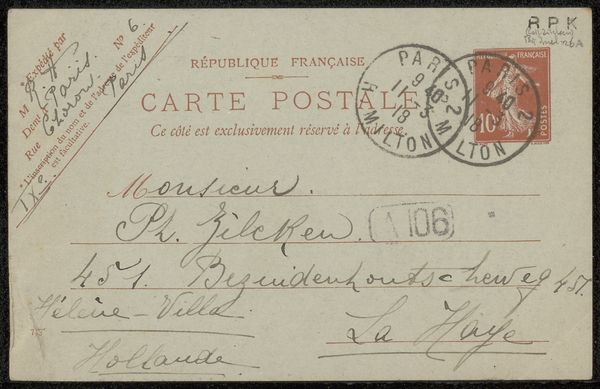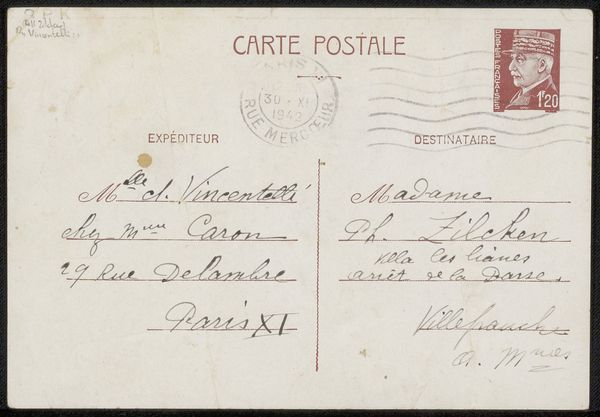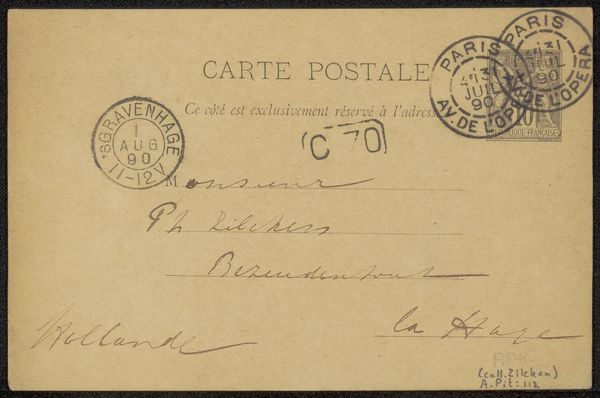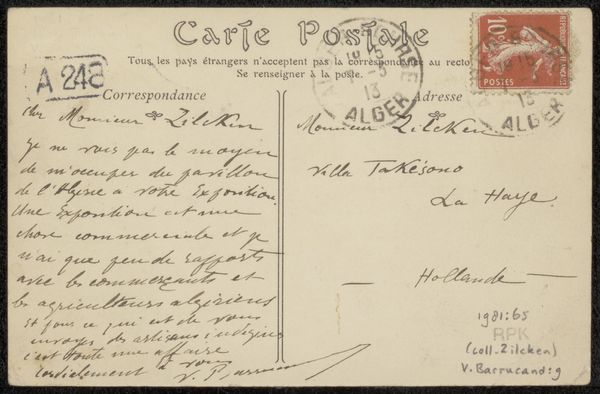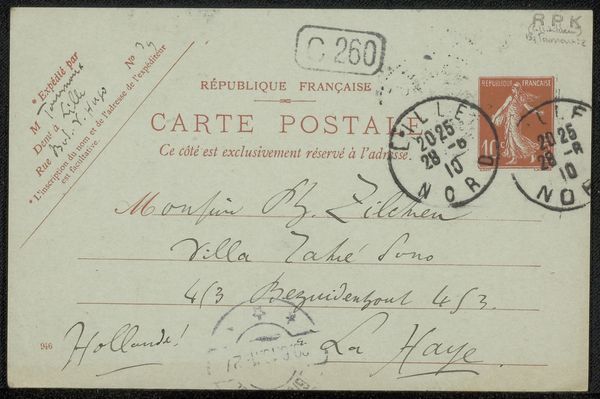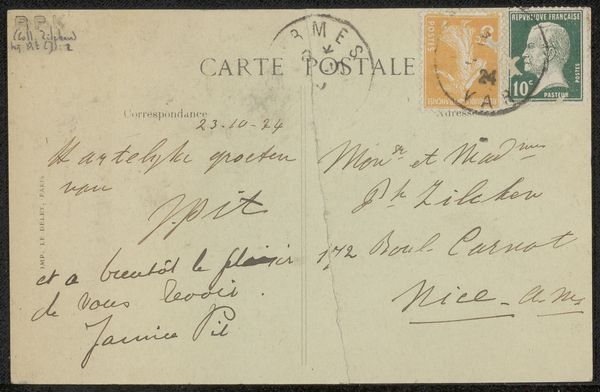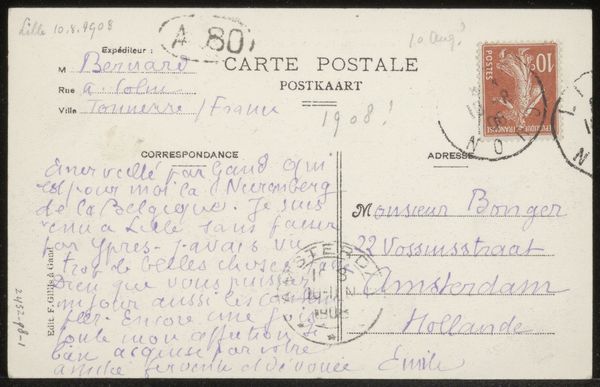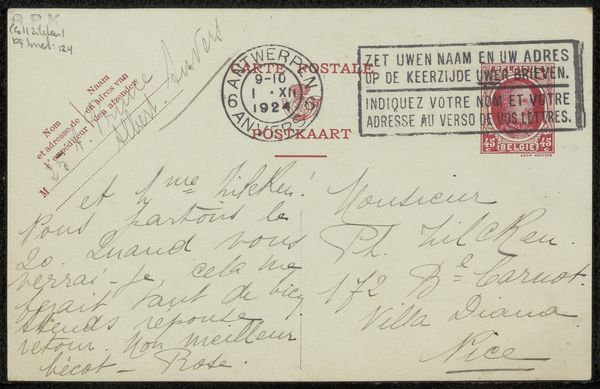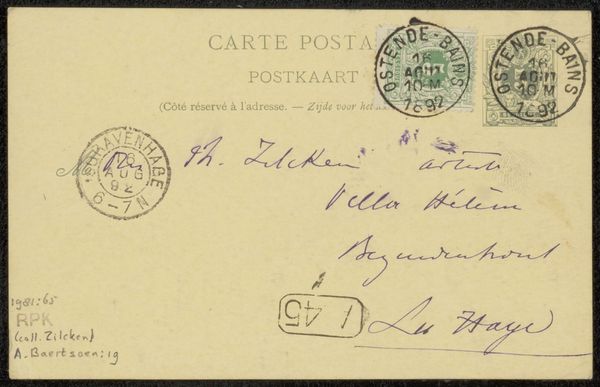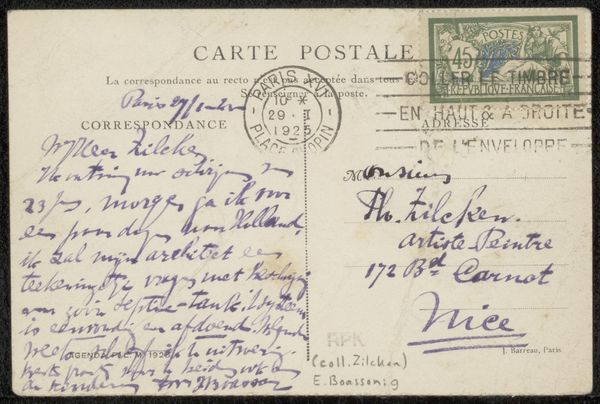
drawing, graphic-art, mixed-media, collage, print, textile, paper, photography, ink, frottage
#
drawing
#
graphic-art
#
mixed-media
#
collage
# print
#
textile
#
paper
#
photography
#
ink
#
frottage
Copyright: Rijks Museum: Open Domain
Editor: This is a mixed-media work, "Prentbriefkaart aan Philip Zilcken," possibly from between 1914 and 1931. It uses drawing, graphic art, collage, print, textile, paper, photography, ink, and frottage. It feels like a fragile communication across time. How do you approach something so materially diverse? Curator: The materiality speaks volumes. This isn't simply a postcard; it's a document of its own creation and journey. Consider the physical labor: the photographer who took the original image, the printer reproducing it, the hand that wrote the message, and even postal workers handling and stamping it. Each touch imbues it with new meaning and context. Editor: So, it's more than just a message; it's a record of different kinds of labor? Curator: Exactly. The paper itself, the inks, the textile maybe used for the frottage texture – all were produced within specific social and economic systems. A French stamp shows the material and political network in play too. What was the significance of sending a postcard versus another form of communication at this moment? It may also show different class-systems interacting with a pre-existing industry with cheap, reproducible material and processes. Editor: The "carte postale" implies mass production and accessibility. It shifts my perspective to consider it as part of a larger communication and commodity network. So you would say materiality and manufacture create another story to analyse? Curator: Precisely. The value shifts when considering it from this viewpoint. Do you see the means of production challenging our understanding? Editor: Yes, by highlighting the multiple processes and layers of labor, it really undermines the traditional art object status. Thank you, it really makes me reconsider the meaning of value in a material way.
Comments
No comments
Be the first to comment and join the conversation on the ultimate creative platform.
